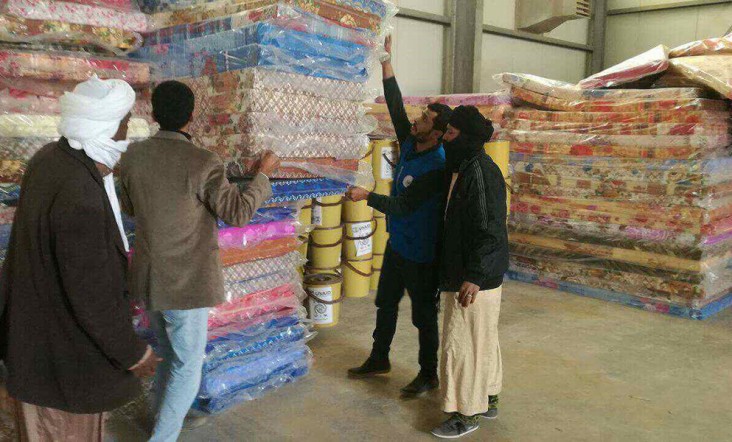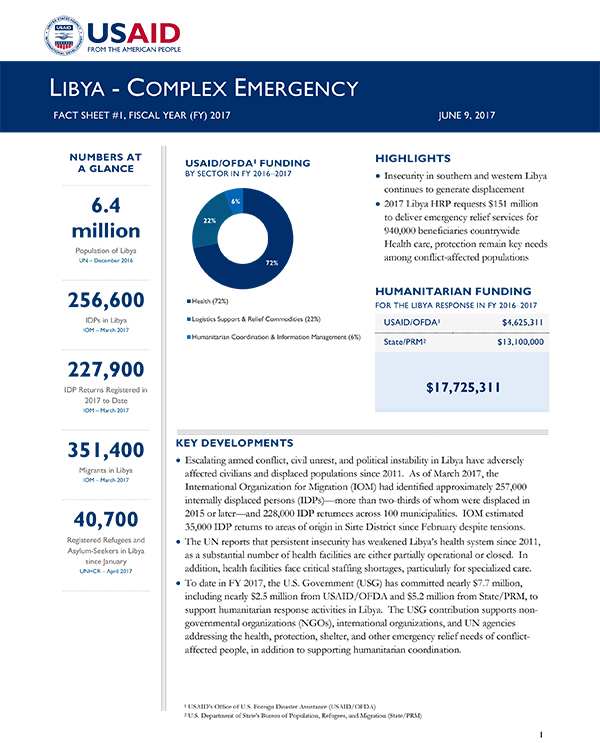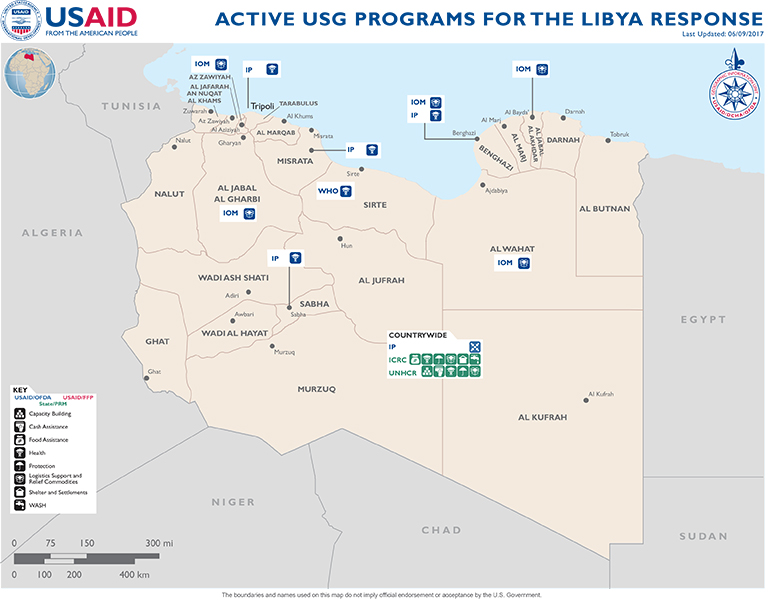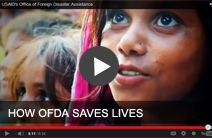- What We Do
- Agriculture and Food Security
- Democracy, Human Rights and Governance
- Economic Growth and Trade
- Education
- Ending Extreme Poverty
- Environment and Global Climate Change
- Gender Equality and Women's Empowerment
- Global Health
- Water and Sanitation
- Working in Crises and Conflict
- Disaster Assistance
- Political Transition Initiatives
- Conflict Mitigation and Prevention
- Countering Violent Extremism
- Disaster Risk Reduction
- Peacebuilding and Reconciliation
- Providing Safe & Secure Environments for Development
- Recovering From Crisis
- Resilience
- Tech Challenge for Atrocity Prevention
- World Humanitarian Day
- U.S. Global Development Lab

Latest Libya Fact Sheet
Libya Complex Emergency Fact Sheet #1 - 06-09-2017 ![]() (pdf - 273k)
(pdf - 273k)
Libya Map - 06-09-2017 ![]() (pdf - 407k)
(pdf - 407k)
Key Developments
Escalating armed conflict, civil unrest, and political instability in Libya have adversely affected civilians and displaced populations since 2011. As of March 2017, the International Organization for Migration (IOM) had identified approximately 257,000 internally displaced persons (IDPs)—more than two-thirds of whom were displaced in 2015 or later—and 228,000 IDP returnees across 100 municipalities. IOM estimated 35,000 IDP returns to areas of origin in Sirte District since February despite tensions.
The UN reports that persistent insecurity has weakened Libya’s health system since 2011, as a substantial number of health facilities are either partially operational or closed. In addition, health facilities face critical staffing shortages, particularly for specialized care.
To date in FY 2017, the U.S. government has committed nearly $7.7 million, including nearly $2.5 million from USAID's Office of U.S. Foreign Disaster Assistance and $5.2 million from U.S. Department of State's Bureau of Population, Refugees, and Migration, to support humanitarian response activities in Libya. The USG contribution supports nongovernmental organizations, international organizations, and UN agencies addressing the health, protection, shelter, and other emergency relief needs of conflictaffected people, in addition to supporting humanitarian coordination
Background
Since 2011, escalating armed conflict, civil unrest, and political instability in Libya have adversely affected an estimated 2.4 million people—approximately 40 percent of the population—and internally displaced more than 484,000 people. An estimated 47 percent of displaced persons have since returned to areas of origin. Conflict and poor economic conditions continue to drive displacement and humanitarian need, while Libya’s public infrastructure has sustained substantial damage and the country’s economy has collapsed, leading to shortages of basic household goods. Health services, in particular, have been adversely affected, with a substantial proportion of health facilities only partially operational or closed. Although local and international humanitarian stakeholders continue to implement emergency relief operations, humanitarian access is limited in many areas due to conflict. Given these conditions, hundreds of thousands of Libyan civilians do not have access to basic services, including life-saving health care, food, safe drinking water, and shelter. On November 16, 2016, U.S. Ambassador Peter W. Bodde issued a disaster declaration for Libya due to the effects of the ongoing complex emergency and lack of local capacity to effectively address the humanitarian needs of vulnerable populations affected by conflict.










Comment
Make a general inquiry or suggest an improvement.